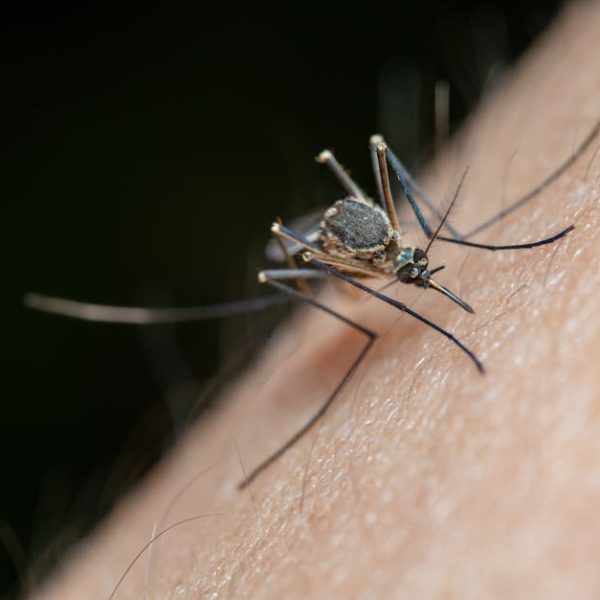Fruit flies may be tiny, but they can become a colossal problem when they invade your kitchen. These pesky little insects, often known as ‘Drosophila,’ find fruit and other food scraps irresistible, leading to an invasion that seems almost impossible to curb. This article aims to shed light on DIY solutions to repel fruit flies and keep your kitchen bug-free.
Understanding Fruit Flies and their Tenacity
Fruit flies, despite their small size, have a big reputation for being relentless household pests. These insects are attracted to ripe and fermenting fruits and vegetables, hence, their name. They lay eggs on the surface of these food sources, which develop into larvae, pupae, and eventually, adult fruit flies – a cycle that can frustrate even the most patient homeowner.
• What are fruit flies? These are small, flying insects, often tan or brownish in color, attracted to decaying organic material.
• Fruit fly Lifecycle: Fruit flies have a rapid life cycle that often begins and ends in your kitchen. Their whole developmental transition, from egg → larva → pupa → adult, can happen in just a week, giving them a tremendous reproductive advantage.
• What Attracts Fruit Flies? Fruit flies are particularly attracted to ripened fruits and vegetables, which can be heightened by poor trash management and unclean surfaces.
Comparing fruit flies to their closer relatives, houseflies, while fruitful for understanding the nuisance they cause, reveals differences that benefit the former. Fruit flies are smaller, breed faster, and can infiltrate through tighter spaces – making them an all the more formidable kitchen pest.
The Root Cause: How Fruit Flies Invade Your Kitchen
You may be pondering, how do fruit flies invade my kitchen? It’s not so much an invasion as it is an invitation. Fruit flies are attracted to the smell of ripened fruit and vegetable in your kitchen. Once they’ve found a source, it’s a buffet they wouldn’t want to leave. Here are some factors contributing to a fruit fly invasion and preventive measures against them:
• Uncovered Food: Exposed ripened fruits, vegetables, sugary substances, or any fermenting organic matter is a magnet for fruit flies. Hence, always remember to cover food and clean up any spills promptly.
• Improper Trash Management: One man’s trash is another man’s (more like a fruit fly’s) treasure. Precisely, the trash bin is a paradise for them; keep it closed!
• Dirty Surfaces: Even tiny fermentation residues can attract fruit flies. Regular kitchen clean-ups help eliminate the sources that draw them.
Pro Tip: Use refrigerator for storing fruits and veggies as much as possible. Along with preventing fruit flies, this also prolongs the freshness and lifespan of your produce.
With these preventive measures in place, it’s time to delve into more focused solutions – DIY fruit fly repellents.
DIY Fruit Fly Repelling Solutions
Would you believe if I told you that you probably already have everything you need to make an efficient fruit fly trap right in your kitchen? What’s more, you can prepare it in just a few simple steps, and it’s completely harmless for you and your family. Here’s a step-by-step guide on how to make DIY fruit fly repellents:
Apple Cider Vinegar Trap: This is one of the most popular DIY traps, and rightly so because it’s highly effective!
- Fill a container about half-full with apple cider vinegar.
- Cover the container with plastic wrap and poke some tiny holes into the cover.
- Place the prepared trap in the fly-infested area.
Sugar and Dish Soap: This trap relies on the irresistible scent of sugar for the flies, but the addition of dish soap ensures they won’t just get a free meal!
- Mix two tablespoons of sugar and a few drops of dish soap in a bowl filled with water.
- Stir until sugar dissolves completely.
- Place the bowl in the problematic area.
Beer Trap: Yes, fruit flies love beer just as many of us do!
- Pour a little amount of beer in a container.
- Insert a paper funnel into the container such that it points towards the beer.
- Place the setup in the fly-filled zone.
Proper Application: For best results, it’s recommended to set these traps up overnight since fruit flies tend to be more active during this time. It would help if you also spread these traps in different areas of the kitchen where you notice more fruit flies.
Checklist:
- Containers (glass jars or plastic cups)
- Apple cider vinegar
- Sugar
- Dish soap
- Beer
- Plastic wrap
- Paper to make a funnel
Additional Information: Always remember to keep these homemade solutions out of reach from pets and small children. Although these solutions are non-toxic, they should not be consumed.
Non-Toxic Commercial Products to Keep Fruit Flies at Bay
While DIY solutions are cost-effective and eco-friendly, sometimes you might require heavy-duty assistance. Fortunately, there are numerous commercial alternatives that are safe for home use.
Commercial repellents often work as attractants, just like DIY solutions, drawing fruit flies into an adhesive trap or a liquid from which they cannot escape.
However, all products are not created equal, and effectiveness does not always correlate with cost. Some affordable options get the job done just as well as pricey, premium repellents. Here’s a comparison of some popular options:
| Product | Method | Effectiveness | Cost |
|---|---|---|---|
| FlyPunch Fruit Fly Trap | Liquid Attractant | High | Moderate |
| TERRO Fruit Fly Trap | Liquid Attractant | High | Affordable |
| BEAPCO Fruit Fly Traps | Liquid Attractant | Moderate | Moderate |
Remember, placement is crucial for these traps, just as with DIY solutions. Keep them near the problematic area for maximum effect.
Maintaining a Fruit Fly-Free Environment
Once you’ve managed to remove fruit flies, it’s equally important to ensure they don’t return by maintaining a clean kitchen.
Regular Cleaning: Clean kitchen surfaces and dining area after every meal. Empty and clean the trash can regularly.
Proper Food Storage: Ensure no ripe fruits or vegetables are left out in the open. Remember, a refrigerator is your best friend!
Regular Check: Regularly check for potential breeding grounds, such as damp sponges, mops, or drains.
If all else fails or the infestation is too severe, consider seeking help from professional pest control services.
Remember, prevention is better than cure, so keeping your kitchen clean and tidy will always be the best strategy against fruit flies. Be persistent, and you’ll win the battle!
Key Takeaway:
- Fruit flies are tenacious insects attracted to ripened fruits and vegetables and other decomposing organic material in kitchens.
- Preventive measures, such as covering food items, proper trash management, and regular cleaning, can reduce chances of an infestation.
- DIY repellents, including the apple cider vinegar trap, sugar and dish soap mixture, and beer trap, are effective ways to eliminate fruit flies.
- Non-toxic commercial products offer additional options for dealing with fruit flies.
- Maintaining a clean and well-organized environment is essential in preventing future infestations.
Having covered different ways to handle fruit fly infestations, remember that persistence and thoroughness are key to keeping your kitchen fruit fly-free. Managing your waste properly, cleaning regularly, and taking proactive steps are always better than reacting to an infestation. Keep your kitchen tidy, follow these tips, and enjoy a fruit fly-free environment.
FAQs
Q: Can fruit flies cause any harm or disease?
A: While fruit flies are mostly annoying pests, they can potentially carry and spread bacteria that may cause diseases. This rarely happens, but it’s another reason to ensure your kitchen remains fruit fly-free.
Q: Can fruit flies breed in drains?
A: Yes, fruit flies can breed in drains, garbage disposals, and other places that may have a build-up of organic matter and moisture. Hence, regular cleaning of these areas can help prevent infestations.
Q: How long do fruit flies live?
A: The lifespan of a fruit fly varies from about a week to a few weeks. However, considering their rapid reproduction, an infestation can last much longer if not properly addressed.
Q: Can DIY fruit fly repellents work for other pests?
A: Some DIY solutions might be effective against other small insects. However, it’s best to seek specific solutions for different pest issues to ensure optimal results.
Q: Do I always need professional pest control to handle a fruit fly issue?
A: No, simple infestations can usually be managed with good sanitation practices and DIY or commercial solutions. However, for severe infestations or if these methods prove ineffective, professional pest control may be needed.
Remember to share this post if you found it helpful, and explore other articles on our website for more insights and tips!






